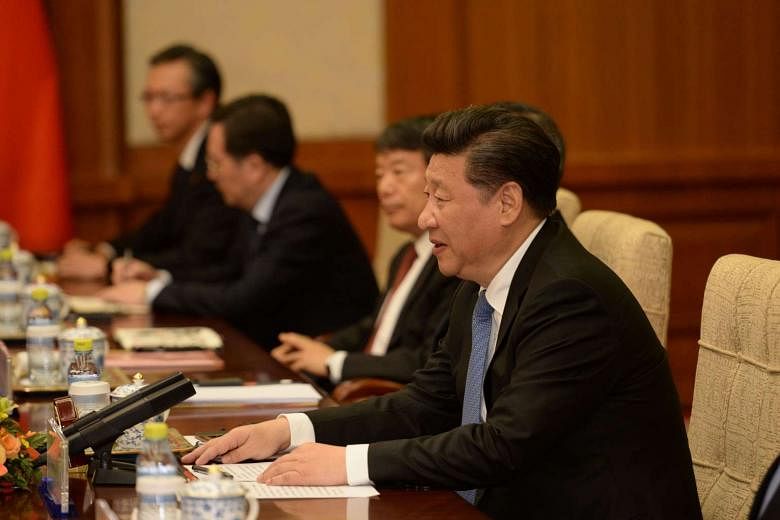BEIJING • China has stepped up the fight against corruption, announcing stiffer punishment for graft-taking officials and imposing more curbs on the business activities of families of senior government officials.
Senior judge Pei Xianding told the China Daily newspaper that officials found guilty of serious corruption may face a new sentence - life imprisonment without parole.
"For some defendants, the death penalty is too heavy and a suspended death sentence too light, so we made the new sentence after research and discussion," Mr Pei told the newspaper.
Convicts sentenced to life imprisonment without parole will spend the rest of their life in prison, no matter how well they behave in jail, he explained.
The judge stressed it does not mean there will be no death penalty in corruption cases, reported the China Daily.
So far the most severe sentences meted out by Chinese courts against top officials convicted of graft have been death with a two- year reprieve - which is normally commuted to a life term - or life imprisonment.
Under President Xi Jinping, China has waged a much-publicised anti-corruption campaign vowing to target both powerful "tigers" and low-level "flies", but no Communist Party official is known to have been put to death for the offence since Mr Xi took office.
Former security czar Zhou Yongkang was sentenced in June last year to life imprisonment for bribery, abuse of power and the intentional disclosure of state secrets.
Former railways minister Liu Zhijun was given a suspended death penalty in 2013 for taking bribes worth 60 million yuan (S$12.4 million), which was commuted to life imprisonment last year.
Under new judicial guidelines issued on Monday, China raised the death penalty threshold in graft cases to 3 million yuan, up from the previous threshold of 100,000 yuan.
The new standards replace those set out in the Criminal Law in 1997, which have long been criticised as being out of date after years of inflation and income growth, reported the South China Morning Post.
Beijing is also expanding a pilot anti-graft scheme to four more regions beyond the business hub of Shanghai as it seeks to weed out graft among officials through the business dealings of their family members.
Starting last May, spouses and children of senior officials in Shanghai were barred from registering individual businesses or partnerships, investing in non-listed enterprises or registering a business overseas and doing business back in China.
Spouses of senior officials in Shanghai were also banned from holding top positions in private companies or senior appointed positions in foreign-invested enterprises.
Now four more regions, from the capital Beijing to south-western Chongqing, far western Xinjiang and southern Guangdong, will join the scheme, Reuters reported, quoting Xinhua.
The decision to expand the programme was taken on Monday at a meeting of the Central Leading Group for Comprehensively Deepening Reforms, chaired by Mr Xi, reported the Post yesterday.
The expansion of the programme also comes after the release of the Panama Papers, which revealed offshore companies linked to the relatives of Mr Xi and other powerful current and former Chinese leaders.
Beijing has denounced as "groundless" accusations arising from the documents.

